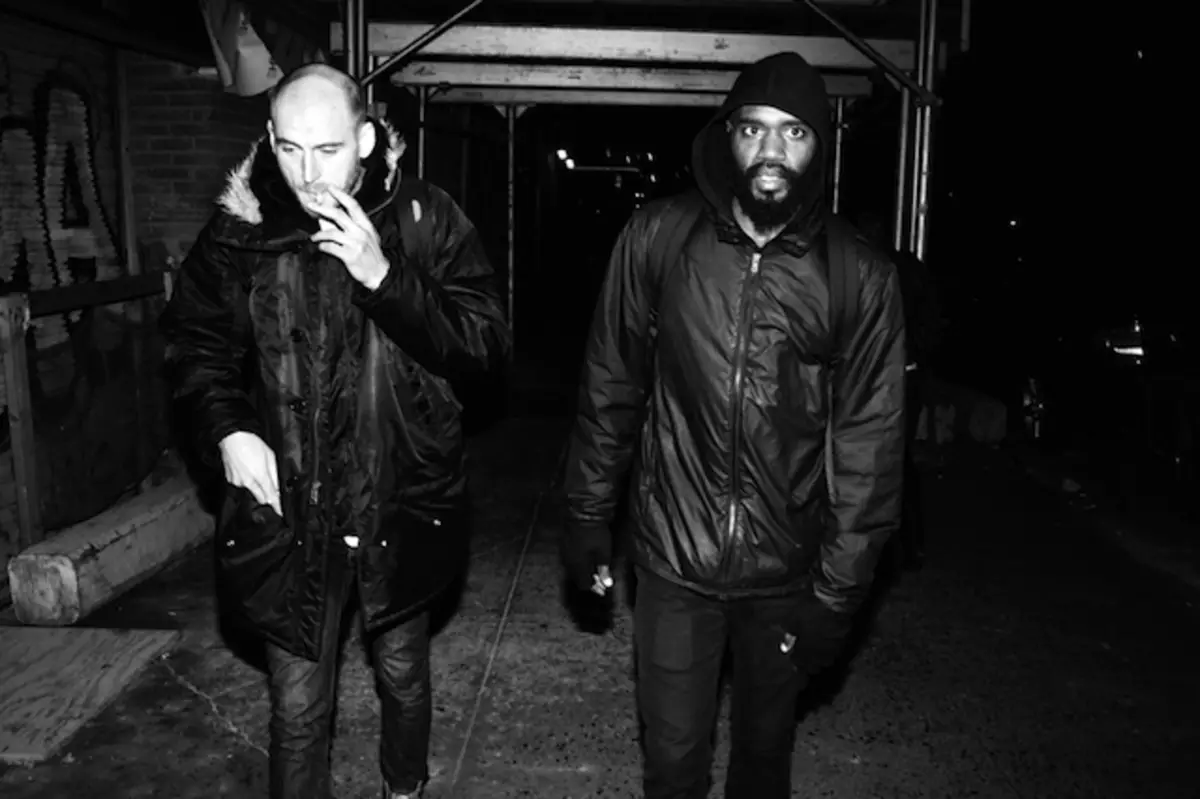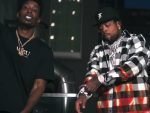What is hip-hop? While it may sound like a question with a relatively simple answer, if someone asked you for a clear definition of the genre, you’d be hard-pressed to formulate an all-encompassing answer in a single sentence.
More so than its contemporaries, hip-hop possesses the uncanny ability to evolve and mature with time due to the increasingly varied influences at its disposal, and the genre continually thrives as a result. Excluding the incessant recurrence of triplet flows and minimalist, bass-heavy trap production present in both the mainstream and underground circuit, many artists carve out their own lanes in terms of creativity and subject matter.
For the lack of a better phrase, there is something for everyone. From emo-influenced heartbreak ballads to rambunctious, street-smart anthems, modern hip-hop prides itself on experimentation. However, one name stands above the others when rap fans toss around the word “experimental,” a name simultaneously praised and reviled. That name is Death Grips.
Before I begin describing why “Year of the Snitch” is one of the best albums of 2018, I’ll get a key detail out of the way: I am a Death Grips fan. I’ve fervently followed the group’s musical output since their debut mixtape “Exmilitary” in 2011, a project that melted my mind the moment I heard it and forever changed how I interpreted the entirety of hip-hop.
Death Grips is somewhat of an acquired taste, however — I don’t mean that in a pretentious way, but rather that you’ll either fall in love with the group’s music or learn to hate it. Upon its release, “Exmilitary” starkly divided rap fans and propelled Death Grips to iconic status in the hip-hop community due to their polarizing sound — which had listeners asking if the group’s music fits within the genre at all.
It’s a fair question, considering the unorthodox and abrasive nature of the Death Grips’ output. The group consists of three individuals: MC Ride, Zach Hill and Andy Morin, with the former operating as the frontman/vocalist while the latter two handle the production.
At face value, “Exmilitary” held more in common with a punk rock album than a hip-hop mixtape. Moreover, “The Money Store,” which saw its release in 2012 and drew direct inspiration from industrial music, did little to discourage this association and tossed any ties binding Death Grips to their hip-hop counterparts into the ether.
To date, the group’s discography consists of six studio albums, with each work building upon, warping and reinventing the trademarks responsible for their notoriety. They often garner both critical praise and audience acclaim, and to me, they haven’t ever missed a beat. Even the projects I consider on the lesser end of their discography still rank as some of the most groundbreaking hip-hop albums I’ve heard this decade.
Admittedly, I held high expectations for “Year of the Snitch,” and upon my first listen, I felt disappointed and confused. In comparison to their previous release, “Bottomless Pit,” the production is noticeably lighter at points and decidedly less focused throughout.
Though the characteristic disorder and abstract lyricism remain stylistic cornerstones, the 13-track album initially came across as a half-hearted, off-the-cuff throwaway project that scarcely even attempted to explore new territory. However, upon closer examination (and more listens than I’d care to admit) I’ve come to realize that “Year of the Snitch” might be one of Death Grips’ most remarkable works to date.

In many ways, “Year of the Snitch” coalesces everything the group’s released to date, but stripped everything down to the basics and reworked it into a frenetic, indecipherable puzzle. Whereas “Bottomless Pit” bombarded fans with primal immediacy, “Year of the Snitch” seems perfectly content to leave the listener spinning in circles.
The opening song “Death Grips is Online” not only references the tweet that kick-started the album’s viral marketing campaign earlier this year, but also sets the soundscape for the next half hour. The majority of the album’s production retains the guitar-heavy, electronic-infused sound that the band’s nurtured over the past several releases and adds an incomparably weird twist.
The hyper-jittery “Flies” features some of Ride’s most erratic flows on the entire project and kicks off the recurring themes of death and suicide that mire nearly every track from here on out. The song’s bone-chilling outro pushes right into the opening chords of “Black Paint,” an oddly catchy track awash with distortion and boasting a chorus — “I require privacy/I’m always thinking finally” — focused on the desire for isolation.
One of the album’s concluding songs, “The Fear,” capitalizes on these sentiments and, despite the track’s nightmarish funhouse acoustic, there’s little in terms of levity to be found. The lyrics seemingly focus on Ride’s internal struggles with the fear of death and the contrasting urge to end it all — “I’ll meet you there/I’ll beat you there/Bet I’ll be there before you leave/Time you get there/I’ll be midair/Like peace of mind’s a bore to me.”
These three tracks summarize the emotional foundation of the album. At its core, “Year of the Snitch” takes a depressive and erratic trip into the mind of a man on the cusp of insanity, unconcerned with the outside world. While Death Grips’ work has popularized the burgeoning “noise-hop” subgenre — Kanye West’s “Yeezus” notably showed signs of their influence — the production primarily serves to enhance the lyrics, which frequently come across as legitimately concerning.
Thankfully, “Hahaha” and “Streaky” give much-needed reprieve from the madness, specifically the latter’s atypically bouncy beat and earworm chorus. Neither track is necessarily accessible, but the songs assist in balancing out the overbearing sense of dread and unreality while also showcasing the group’s capability to craft catchiness along with chaos.
The concluding track, “Disappointed,” almost certainly disses critics and fans in anticipation of dissatisfaction from both, though confusion may prove a more common response. Even as an individual well-versed in Death Grips lore, “Year of the Snitch” baffles me — choosing “Shrek” director Andrew Adamson to introduce “Dilemma,” making off-hand references to “the horn section” and the identity of the eponymous Linda from “Linda’s in Custody” will ostensibly remain mysteries until the end of time.
Then again, Death Grips repeatedly proves that providing answers or tailoring music to their fanbase don’t make their list of priorities. Recognition and accessibility seem to be afterthoughts for the group, with their art taking precedence over any additional concerns.
While “Year of the Snitch” might occasionally dial back the dissonance, its unrelentingly antisocial stance clearly expresses how little it desires your approval, though it doesn’t mind leaving a permanent impression along the way.

















